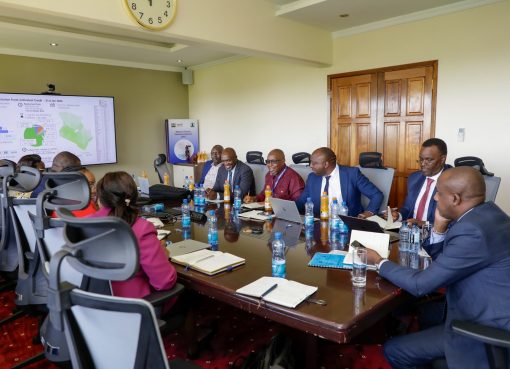The Government has been urged to institute measures to reduce the cost of energy in the country, a move which will drive growth in the manufacturing, transport and other energy driven sectors.
The Public Service Governance (PSG) President, Amb Esther Waringa, said that the escalating cost of living due to high energy cost is stifling economic growth and a lot needs to be done to reduce the cost of energy in the country.
She said that as an institution, PSG has identified seven key economic drivers which if well-handled could spur economic growth.
Addressing the press in Nairobi, Thursday, Waringa said the seven key components include affordable and sustainable energy, employing progressive interventions to earn revenue through agribusiness and agri-industrialisation, providing quality and affordable education, providing affordable and accessible medical services, improving security, stabilisation of the Kenyan shilling against the dollar and inter-agency synergy in the three arms of the government.
She stated that there was an urgent need to reduce the rising cost of doing business which she noted was not only causing investors to flee to neighbouring countries, but also leading to high unemployment rates in the country.
Waringa added that in order for the government to reduce the high cost of electricity, it has to revise the energy tariffs and reduce the levies on petroleum products.
She urged the government to reduce Sh70.32 tax for every litre of fuel to Sh55 and to revise the 16 percent tax on kerosene, super petrol and diesel down to 8 percent.
“We are also advising that all the 47 counties, must employ progressive interventions to earn revenue through agribusiness,” said Waringa, insisting that with the high rate of poverty, there must be an increase of land under agricultural production.
“More seedlings must be given to farmers, more fertilizer and more land utility to enhance production in the next planting period,” She added.
Waringa urged all Governors to prioritise agriculture and give a huge funding to production and the building of storage facilities for agricultural produce to avoid wastage.
“This will create food security and offer job employments, while creating a sustainable income to our people hence reducing poverty. We will have made agriculture a system of de-urbanisation, thus enhancing urban to rural migration,” said Waringa.
Speaking on education, Waringa highlighted that education is the foundational principle for growth and development of a country and that learners must be given a conducive environment for learning.
“Despite the government employing 56,000 teachers, the ratio of teacher to student is still huge, the teacher supply and demand remains a challenge, and requires urgent attention by the government,” she said.
Waringa said that due to increased poverty levels and high costs of living, many children who have performed well in the last exams are still at home and have no financial capability to join form one.
Waringa added that people needed to know the benefits of the Social Health Insurance Fund (SHIF), before the mandatory registration.
By Billy Sabari and Abundance Mutave





